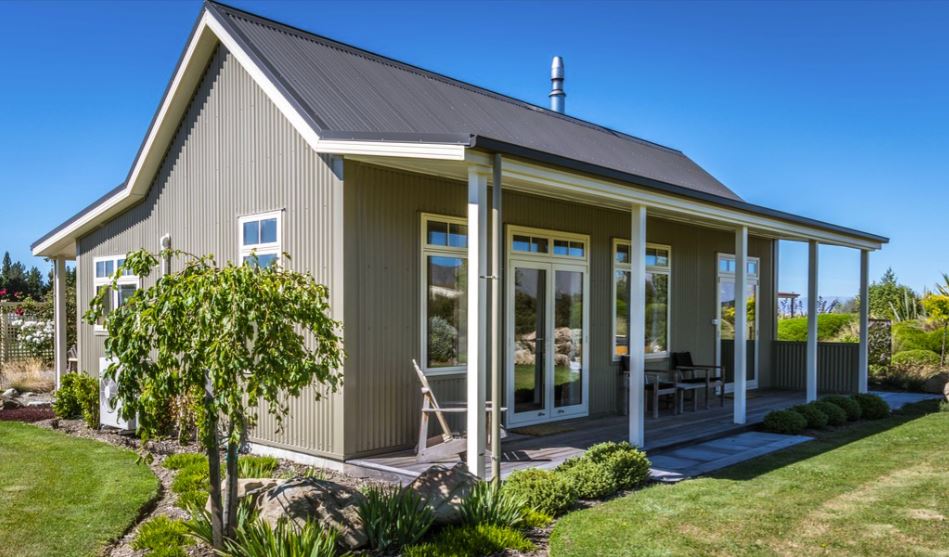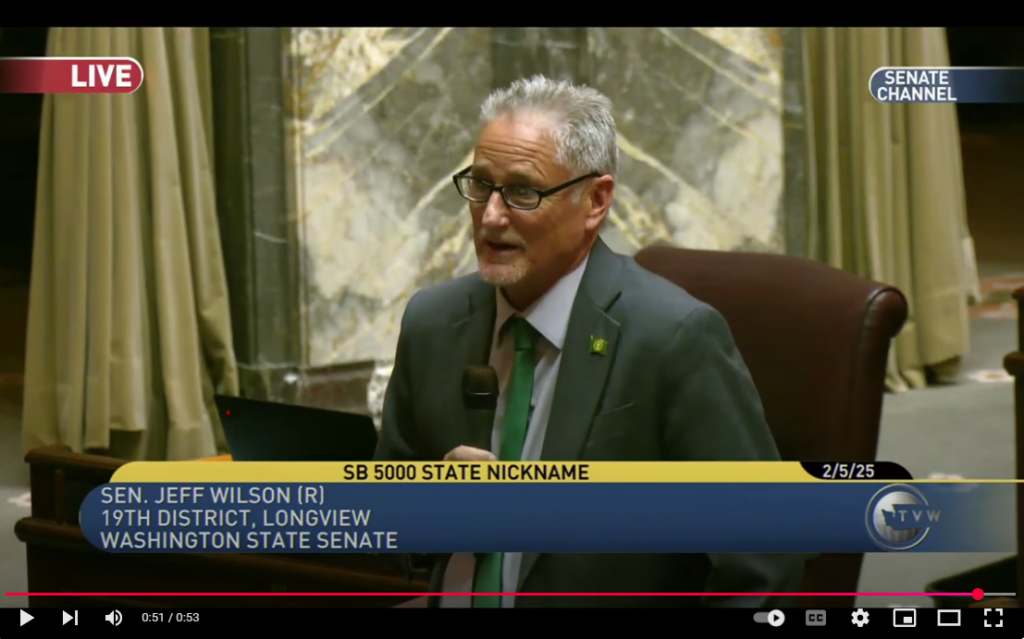Note: This e-newsletter was sent to Sen. Wilson’s subscribers Feb. 6, 2025. To subscribe to Sen. Wilson’s e-newsletters, click here.
Dear Friends and Neighbors,
Sometime very soon, we will hear the barking of sea lions as they return to the waterways of Southwest Washington to turn our salmon into a snack. Last spring, hundreds of them swarmed the Columbia and its tributaries, and they swam further upstream than ever before, a full 70 miles up the Cowlitz to the barrier dam. These pinnipeds are taking a big bite out of our efforts to restore fish to our rivers, and experts say salmon and steelhead runs in some areas are in danger of being wiped out.
We can’t let this happen. I am seeking additional money in the state budget to give the state Department of Fish and Wildlife the funding it needs to capture and cull sea lions. Last year I obtained $1.5 million in the Senate budget to expand efforts in our region. Unfortunately, this funding did not make it into the final budget. This year, as lawmakers submitted budget requests, a special appropriation for WDFW was my top priority.
Efforts to control pinniped predation have long been complicated by federal oversight, but that’s not a problem now. In 2020, the National Marine Fisheries Service granted Oregon and Washington agencies a five-year license to expand predator control on the lower Columbia and its tributaries. Their efforts have reduced predation near Bonneville Dam and Willamette Falls, saving tens of thousands of threatened and endangered salmon. Now that this permit has been renewed, we need to extend this effort to tributaries like the Cowlitz, by getting Fish and Wildlife the funding it needs to purchase equipment suitable for shallower waterways. We also need to work on expanding this permit to Puget Sound.
We haven’t been as aggressive as we could be, I think, because of a reluctance to face the truth. Herschel and his friends are not cuddly creatures, and the incursion we are seeing is not a natural phenomenon. Sea lion populations in our region have doubled since 2005. Last year we saw hundreds of them on the river. Each sea lion consumes up to 40 pounds of salmon per day. At least 12 percent of our salmon runs are lost to predation, and the problem is much worse in some areas. Before control efforts began, fisheries experts estimated sea lions were consuming 44 percent of spring Columbia chinook and 25 percent of Willamette winter steelhead.
The bottom line is that if we fail to take action, we could see the wipeout of some fish stocks. That’s what happened at the Ballard Locks 30 years ago. If we fail to act decisively today, history will repeat.
Senate majority guts Parental Rights initiative
First floor fight of the year in the Senate challenges effort to undermine an initiative from the people
This week we had our first major floor fight of the year in the Senate as the majority party passed a bill to gut last year’s parental rights initiative. This measure was one of several initiatives presented to the Legislature last year, and it was so popular with voters that our colleagues chose to pass it in the House and Senate rather than sending it to last fall’s ballot. Unfortunately, they didn’t choose to respect it.
The initiative requires schools to provide immediate or prior notification to parents about important matters involving their children, including non-emergency medical services, police investigations and more. Some of these provisions don’t sit well with our majority colleagues, and they voted Wednesday along party lines, 30-19, to weaken and delete them. They were able to do it because special constitutional protections for initiatives do not apply when the Legislature passes a measure and no public vote is taken. The bill now moves to the House, where a similar bill also is advancing.
As ranking Republican on the State Government, Tribal Affairs and Elections Committee, I am appalled at this disregard for an initiative submitted by the people. It wasn’t easy for them to put Initiative 2081 before us. Thousands of volunteers collected signatures, and 454,000 people signed petitions. Our state constitution declares that the initiative is “the first power reserved by the people,” yet with a simple majority vote our colleagues betrayed their trust. This troubling decision is yet another indication that the Legislature’s current leadership is out of step with the people we represent.
Kit-home legislation looks to the past for solution to today’s housing crisis
Bills remove roadblocks to kit-home siting and permitting
Kit home. Credit: CC by 2.0/ Shellie Evans
We all know we have a housing crisis in this state. Home prices and rents have soared over the last few years because we aren’t building enough dwelling units to keep up with demand. The Department of Commerce tells us that we will need 1 million new houses and apartments over the next 20 years to meet the needs of a growing population. The situation calls for multiple approaches – and I think we can find one answer by looking to the past.
A hundred years ago, you could buy a home from the Sears catalog, and many other manufacturers offered kit homes of their own. These home kits provided all lumber and fittings, and often the wood came pre-cut. Kits remain available on the market today, often including prefabricated roofs, walls and floors. Prices start under $10,000, and models range from 60 square feet to 2,000 or more. These kits offer an inexpensive way for an ambitious do-it-yourselfer to build an accessory dwelling unit in the back yard, or even a full house. For the second time, I have introduced legislation that would streamline siting and permitting rules for smaller kit homes, 800 square feet or less. Last year we got this bill through the Senate, but it died in the House. My new-and-improved proposal this year consists of two bills:
- Senate Bill 5249 gives cities and counties the ability to site kit homes wherever single-family homes are allowed, and permits their use as temporary housing in other locations.
- Senate Bill 5552 creates a new state building code category for kit homes, taking advantage of the economy that standardized designs provide.
So far we have gotten hearings on both of these measures. Stay tuned!
132 years late, Senate passes bill to make Washington ‘The Evergreen State’
See my speech on the Senate floor about Senate Bill 5000, making our state nickname official. To see video, click here.
Finally, let me tell you about something I hope will brighten your day. At long last, we are getting around to declaring Washington to be The Evergreen State. We are only 132 years late. We’ve been using this nickname since 1893, when a phrase coined by a Seattle real-estate promoter was featured in official state advertising at the Chicago World’s Fair. Newspapers in 1893 reported that the Senate passed a resolution adopting the nickname. But this vote doesn’t show up in official records, no copy of the resolution has ever been found, and there is no indication it was considered by the House.
I am leading the effort to correct this oversight, and I am pleased to report my bill making it official passed the Senate Wednesday 49-0. This is the third time the Senate has passed this bill, and let’s hope the House this time recognizes this legislation is a tad overdue.
Thanks for reading!
Sen. Jeff Wilson
19th Legislative District
Contact me!
Email: Jeff.Wilson@leg.wa.gov
Mailing address: P.O. Box 40419 /Olympia, WA 98504
Leave a message on the Legislative Hotline: 1-800-562-6000
Take our survey: Let us know what you think at http://www.JWilsonSurvey.com
To unsubscribe from these regular updates from Olympia, go to the Subscriber Preferences Page below.













